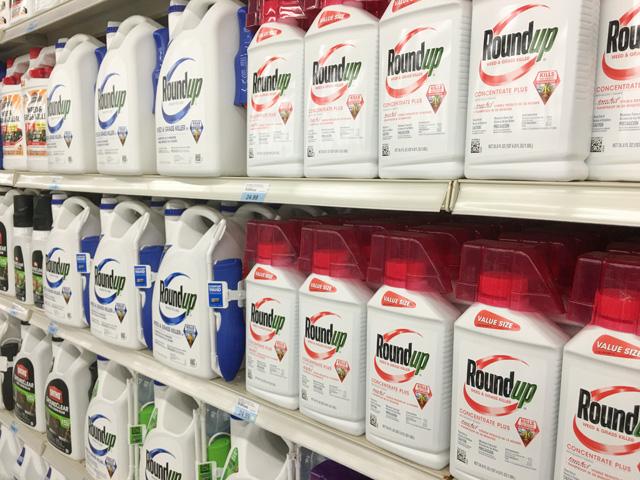Bayer Loses $2.25B Roundup Verdict
Philadelphia Court Awards $2.25 Billion to Alleged Roundup Cancer Victim
LINCOLN, Neb. (DTN) -- A Philadelphia Court of Common Pleas jury awarded a Pennsylvania man $2.25 billion in damages in a Roundup liability trial that wrapped up Jan. 26 in Pennsylvania.
A jury ruled that Bayer's glyphosate-based Roundup caused cancer in John McKivison, 49, a Lycoming County resident who used Roundup to kill weeds at his family's home for about 20 years. The jury also ruled Bayer was negligent and failed to warn consumers of the product's alleged dangers.
The $2.25 billion in damages is among the largest award issued by a court in the Roundup cases.
Though Bayer has been ordered to pay many millions of dollars because of Roundup verdicts, the company has managed to have final damage amounts reduced by about 90% across all the cases.
In addition, Bayer has won 10 of the past 16 Roundup verdicts.
When contacted by DTN, Bayer said it believes it has several grounds for appealing the latest verdict.
"We disagree with the jury's adverse verdict that conflicts with the overwhelming weight of scientific evidence and worldwide regulatory and scientific assessments and believe that we have strong arguments on appeal to get this verdict overturned and the unconstitutionally excessive damage award eliminated or reduced," Bayer said in a statement.
P[L1] D[0x0] M[300x250] OOP[F] ADUNIT[] T[]
"The company remains committed to taking cases to trial, as our track record demonstrates that we win when plaintiffs' attorneys and their experts are not allowed to misrepresent the worldwide regulatory and scientific assessments that continue to support the products' safety."
Bayer said the latest verdict was "at odds" with a recent decision by the U.S District Court for the Eastern District of Louisiana. That court granted Bayer's motion for summary judgment in a similar Roundup case because plaintiffs "lacked reliable evidence" to prove their case.
According to the American Tort Reform Foundation, the Philadelphia court and the state's supreme court were found to be the top "Judicial Hellholes" in the country. The ATRF defines such courts as places where "judges systematically apply laws and court procedures in an unfair and unbalanced manner, generally against defendants in civil lawsuits," according to the group's website.
Bayer told DTN the latest case was "marred by a number of significant errors" at trial.
"Plaintiff's counsel was permitted to conduct unrestrained cross-examination of company witnesses, including asking our experts prejudicial lines of questioning on documents they had never seen before, as well as questions on matters wholly irrelevant to the central issue in this case -- whether Roundup is carcinogenic," Bayer said in a statement.
"During trial, defendants moved for a mistrial after the court improperly sustained plaintiff's objections to the testimony of a company scientist and struck a large portion of the defendant's direct examination on topics directly relevant to the central issue in the case -- whether Roundup is carcinogenic."
In November 2023, a jury in Jefferson City, Missouri, awarded $1.6 billion in punitive damages to four plaintiffs.
Also in November, the European Commission announced it would renew glyphosate's approval for 10 more years after EU member states were unable to reach a majority opinion on the extension.
In addition, the U.S. Court of Appeals for the Ninth Circuit found California's Proposition 65 warning for glyphosate to be unconstitutional, stating in its opinion, "IARC stands essentially alone in its determination that glyphosate is probably carcinogenic to humans, while EPA, OEHHA and regulators from around the world conclude that it is not."
In 2015, the World Health Organization cancer research agency concluded glyphosate was "probably carcinogenic" to humans. That conclusion stands in contrast to many agencies around the world, including the EPA that classifies the chemical as non-carcinogenic.
Read more on DTN:
"Big Changes Coming to Bayer's Crop Division," https://www.dtnpf.com/…
"Jury Awards $1.6B in Roundup Verdict," https://www.dtnpf.com/…
"Bayer CEO: Company Restructure Coming," https://www.dtnpf.com/…
Todd Neeley can be reached at todd.neeley@dtn.com
Follow him on X, formerly known as Twitter, @DTNeeley
(c) Copyright 2024 DTN, LLC. All rights reserved.






